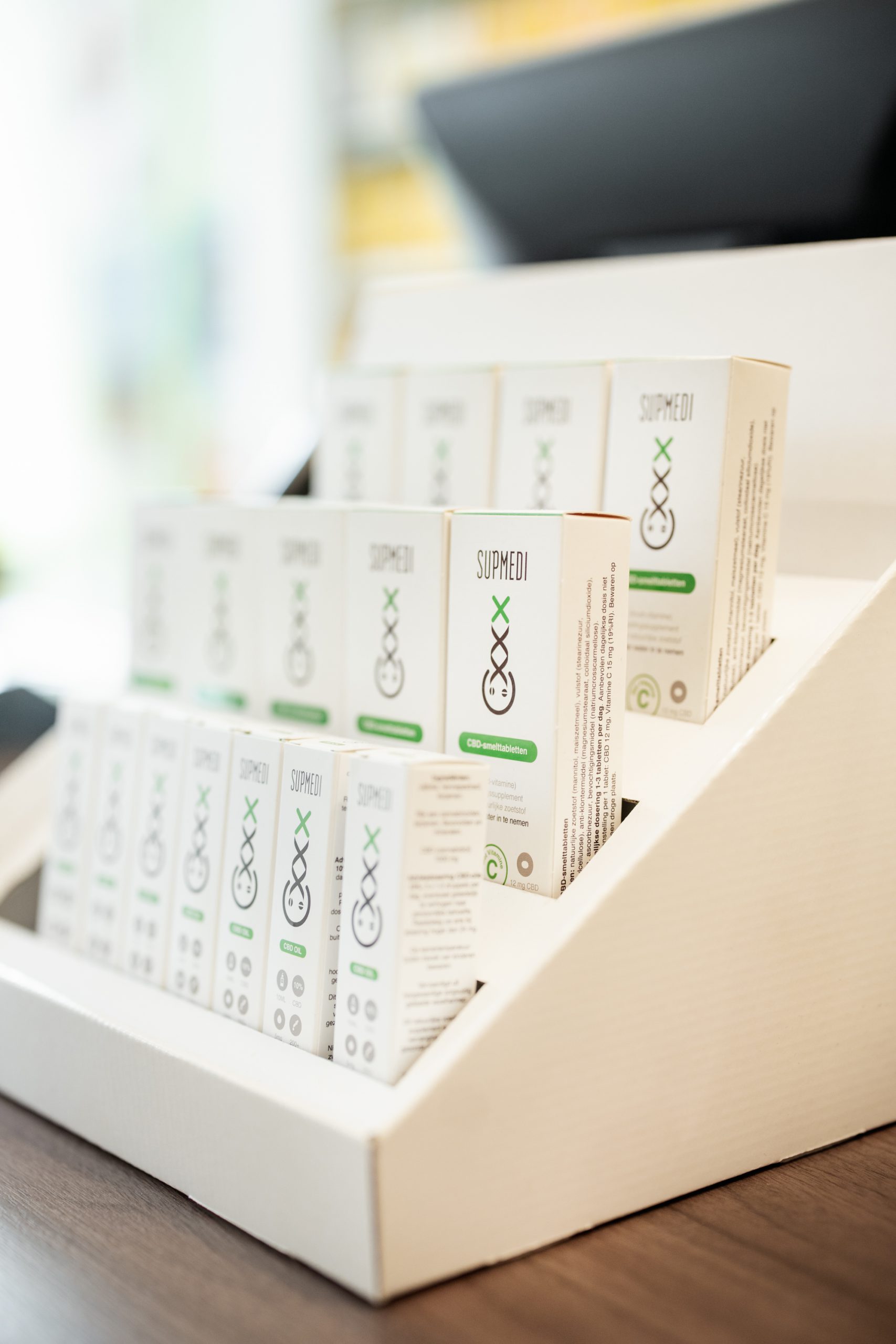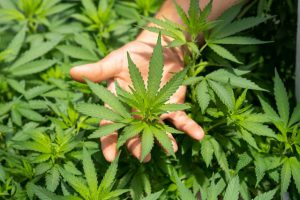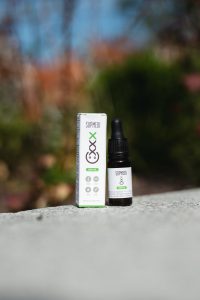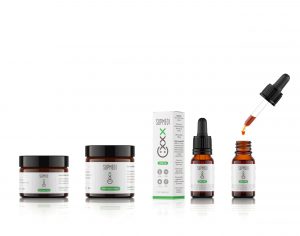
CBD And Other Cannabinoids
10 November 2020Cannabidiol (CBD) is one of the best-known cannabinoids produced by the cannabis or hemp plant. Another famous one is tetrahydrocannabinol (THC). These are just two compounds from a much larger family. So far, over one hundred different cannabinoids have been studied. Some of these have been investigated for medical properties, but most are still uncharted. The total number of cannabinoids is estimated at around 400. But what exactly are CBD and all these other cannabinoids, and what could they have in store for us? In this blog, we summarise what science can tell us about CBD and other cannabinoids so far.
What Are Cannabinoids?
Cannabinoids are natural compounds produced by hemp plants. CBD and other cannabinoids have been used by humans for ages: sometimes accidentally, and sometimes deliberately. To all probability, THC is the most famous cannabinoid of all. However, CBD is making progress as it gains in popularity as a potential natural remedy against a staggering range of conditions. Our own body can work with cannabinoids. We even have a special mechanism for it in our own biological makeup: our endocannabinoid system (ECS). Or own cells even produce their own brand of so-called endocannabinoids, which strongly resemble the phytocannabinoids found in cannabis plants (‘endo’ means ‘internal’; ‘phyto’ is Greek for ‘plant’). This similarity enables our own cells to recognise cannabinoids from hemp. That explains why a substance like CBD can have so many different positive effects on our health.
All The Wonders Of Hemp Plants
Hemp contains hundreds of organic compounds, each with their own possible benefits for our health. These include dozens of cannabinoids, including CBD, CBN, CBG, and CBC, as well as other substances. Terpenes are an important class of compounds here, as are flavonoids. These all have their own effects, but taken together, their possibilities increase exponentially. These cooperations between substances are known as the entourage effect: with CBD supplements, the whole can truly be more than the sum of its parts.

The exact compounds any plant produces depends on several factors. The type of hemp plant is leading: this is also called a plant’s strain. Different hemp strains produce different kinds of cannabinoids in different quantities. Then there are factors including the soil where the plant grows, nutrients, lighting, and so on. In short, we can say that all environmental factors affecting how the plant grows and thrives help determine the exact final tally of respective cannabinoids.
What Is The Difference Between CBD And THC?
THC is the cannabinoid that can get people high. In addition, the degradation product of THC, called CBN (cannabinol), also has some mild psychoactive properties. These are mainly experienced as calming, stress-reducing effects. Even the remaining cannabinoids do have their effects on the body, they cannot get us high. You won’t find THC in SupMedi CBD products; we carefully remove it from our extracts to make sure you stay sharp, fit, and completely sober. We also use cannabis plants that produce less than 0.3% THC. Up to that limit, cannabis is officially called ‘hemp’. It is important to know that hemp, cannabis, and ‘weed’ can mean very different things.
Many people are not aware that many of the compounds cannabis produces are in fact acids. THC, for instance, exists as THCA in the plant, and CBD as CBDA: the A denotes the acid group in the molecules. These acids have their own set of medicinal properties. A process known as ‘decarboxylation’ turns the acids into what we call ‘active cannabinoids’.
The difference can be made clear by pointing out that people can’t get from THCA, although they could by taking THC. The chemical structure differs enough to make the compounds interact with the body in different ways. Below, you’ll find a summary of important cannabinoids and their medicinal properties.
No Hard Claims: Research In Progress
Before we start our list, though, a few notes are in place. We cannot make bold claims about CBD being medicine; nor do we want to. The simple reason is that we just don’t know enough about CBD yet. The scientific investigations are still ongoing, and whether you like it or not, medical research takes a lot of time. Everything has to be done cautiously and with great care, because we are dealing with health issues here.
And what goes for CBD is doubly true for most other cannabinoids. Right now, CBD is just about the most thoroughly studied cannabinoid of all; so we have to be extra careful when discussing other hemp plant compounds. We stress that the properties listed behind the various compounds are no hard medical facts. These are suspected effects, still to be proven by rigid medical studies. Our main goal here is to give you an impression of the many interesting substances the hemp plant can offer us.
Properties Of CBD And Other Cannabinoids
Cannabidiol (CBD): Antibacterial, analgesic, muscle relaxing, anti-inflammatory, promotes bone growth, nerve protecting, reduces epilepsy, suppresses muscle spasms, lowers blood sugar levels, improves immune system, reduces arterial blockage, inhibits small intestine contractions, reduces nausea, reduces anxiety, soothing, reduces skin problems, vasodilation, inhibits tumour cell growth.
Cannabidivarin (CBDV): Analgesic, promotes bone growth, reduces epilepsy.
Tetrahydrocanabinol (THC): Antibacterial, analgesic, muscle-relaxant, anti-inflammatory, nerve protecting, antioxidant, promotes appetite, reduces muscle spasms, dilates airways, improves immune system, lowers ocular fluid pressure, reduces stress, reduces nausea, eases asthma attacks, attacks cancer cells, reduces menstrual pain, promotes sleep.
Cannabinol (CBN): Relaxing, promotes sleep, soothing, stimulates appetite, analgesic, anti-inflammatory, promotes bone recovery, helps prevent glaucoma.
Cannabigerol (CBG): Antibacterial, analgesic, anti-inflammatory, reduces nerve pain, possibly fights cancer cells, antidepressant, sleep promoting, anti-fungal, promotes bone growth, releases ocular fluid pressure, reduces skin issues.
Tetrahydrocannabivarin (THCV): Suppresses appetite, promotes bone growth, reduces panic attacks, helps counter epilepsy.
Cannabichromene (CBC): Antibacterial, analgesic, antidepressant, anti-fungal, anti-inflammatory, promotes sleep, promotes bone growth, promotes generation of nerve cells, inhibits tumour cell growth.
Want To Try CBD And All Those Other Cannabinoids For Yourself?
SupMedi CBD products contain (almost) all the natural compounds found in hemp plants. The only thing we remove is THC. This allows you to enjoy not just the effects of CBD, but the full range of all the other cannabinoids, flavonoids, and terpenes. We do so in the purest way possible: we have all of our supplements tested by the independent analysts at Eurofins Proxy Laboratories.
If you would like to experience the many properties and effects of CBD for yourself, be sure to check all our CBD products right here.









